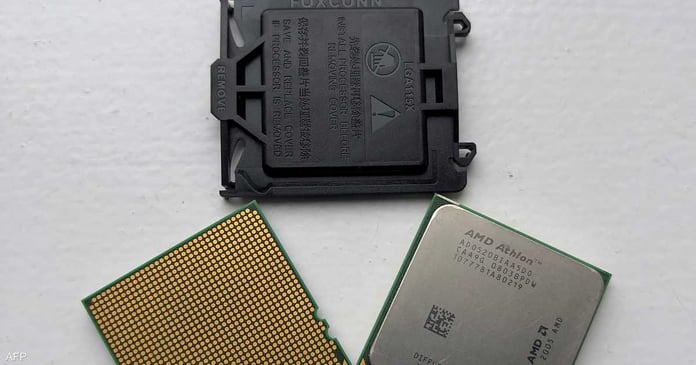But they warned that President Xi Jinping’s ability to up the ante will be limited as his priority is to revive the world’s second-largest economy after it was weakened by three years of policy to fight the Covid pandemic, according to a AFP report.
China on Sunday banned the use of Micron chips in critical infrastructure projects, and Beijing justified it as posing “significant network security risks” that could affect “national security”.
Washington expressed “serious concerns” about the decision, which came as leaders of the Group of Seven countries signed a statement urging Beijing to end “economic coercion”.
The move marks a major shift in China’s response to US measures targeting the country’s tech sector and has been described by Gary Ng, chief economist at global chip trader Natixis, as a “step”.
He pointed out that it was the first Chinese investigation against a foreign company since Beijing tightened cybersecurity rules in 2021.
“I wouldn’t be surprised if regulators use these reviews as a retaliatory tool in the future” when faced with other geopolitical issues, Gary Ng said.
For her part, Emily Weinstein, a researcher at Georgetown University specializing in technological competition between the United States and China, explained that the definition of what falls under “sensitive information infrastructure” is very broad. , ranging from online government services and defense issues to health care and water advice. .
She noted that “China has always invoked national security or other reasons to create protectionist barriers,” including mandatory technology transfer agreements that require companies to store all data locally and foreign entities to create joint ventures with local partners in many sectors.
‘Pour oil on the flame’
China launched an investigation against Micron in late March, five months after the United States unveiled sweeping restrictions aimed at cutting off Beijing’s access to advanced chips, chipmaking equipment and software used to design semiconductors. -drivers.
“This is clearly part of a retaliatory response to what Beijing sees as Washington’s support for Micron and the US semiconductor industry,” said Paul Triolo, China technology expert at consultancy Albright Stonebridge. .
He added that Micron had been chosen to send a political message, explaining that previous cybersecurity reviews of local companies such as Didi and Uber in China had focused on data rather than broadening the scope to include national security.
And in 2022, Washington banned chipmakers including Yangtze Memory Technologies, also under the guise of “threats to national security.”
The Chinese announcement came as the Group of Seven countries said they would act to ‘remove the dangers, not separate’ from China, while Washington urges its allies to unite to curb oil exports. ‘chip equipment to China.
“The strong statement from the G7 may have added fuel to the fire,” Ng said.
However, Xi’s desire to fight what he sees as US hegemony must be weighed against the impact of similar measures on the economy.
Analysts said Micron was an easy target for China because its semiconductors could be replaced by South Korean SK Hynix and Samsung products.
It will be difficult to target other US companies such as Intel and Qualcomm as their technologies are used in consumer goods, including smartphones that are manufactured domestically and shipped overseas.
Betting on South Korea
“By targeting American companies like Micron, the goal is to send a signal that Beijing is willing to make sacrifices in its battle against the United States,” said Ja Ian Chung, associate professor of political science at the University. National University of Singapore.
“But Beijing is keen to limit” these sacrifices, he added, according to Bloomberg News.
According to Toby Chu, an analyst at market research firm Canalys, the ban will hit companies that provide cloud services or data centers particularly hard, as they use devices that require advanced memory chips.
He told AFP that Micron’s consumer products are “all interchangeable” with those of domestic and South Korean chip vendors.
In turn, Triolo said Beijing is “betting on switching to South Korean suppliers.”
But last month, the White House urged South Korean chipmakers not to export to China to fill the void left by the ban on U.S. semiconductor imports.
The Netherlands and Japan have announced restrictions on chip exports, following demands from Washington.
Read the Latest World News Today on The Eastern Herald.


